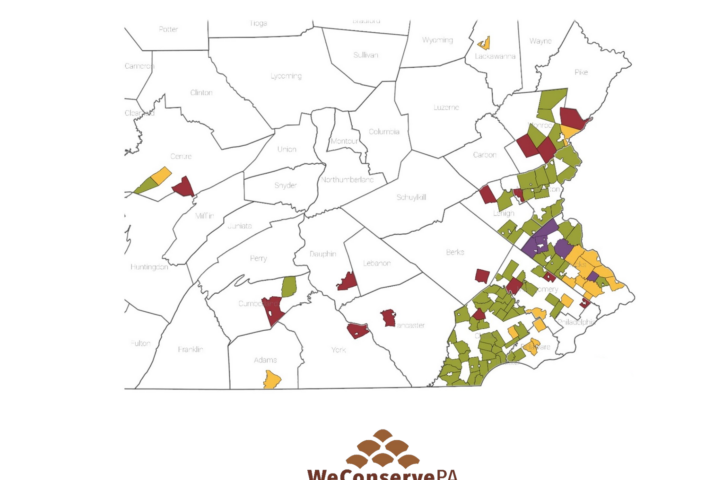WeConservePA has developed more than 150 guides, most featuring wholly original content. Keeping them accurate, relevant, and helpful requires regular review of their content and updates to address changes in the law, developments in the field, and newly understood needs. WeConservePA refreshed five guides recently, with brief descriptions following the guide names as well as links to the updated guides in our library, formerly “Conservation Tools.”
- Pennsylvania Local Governments May Support Land Trusts:
If the governing body of a Pennsylvania local government deems it to be for the public benefit, Pennsylvania’s open space act authorizes it to appropriate money to a land trust “for the acquisition or conservation and preservation of interests in real property for the purpose of achieving open space benefits”; and, to “transfer open space property interests to a land trust.” No bidding is required, nor is payment by the land trust. This guide can make clear to land trust organizations a variety of the ways in which PA government bodies may be able to support and bolster their work.
- Reversionary Interest:
A reversionary interest is the right to resume ownership of land if and when certain conditions are met. Reversionary interests have been used for centuries to provide a mechanism for change of ownership if certain conditions set forth in a deed are not met. If an owner is willing to donate or sell land only for so long as it is used, or not used, for a particular purpose, the owner can transfer the land on a conditional rather than absolute basis. The deed used to convey the property can include terms that will trigger a change in ownership back to the original owner—or some other person or entity assigned by them—if use or ownership of the land falls out of compliance with the conditions set forth in the deed. While rarely implemented, a knowledge of reversionary interests is helpful for the engaged conservation professional, and this guide explores the topic thoroughly.
- Purchase Options: Gaining the Right Without the Obligation to Acquire Property Interests:
In real estate, a purchase option assures the option holder of the right to purchase property at a certain price within a certain time period but without an obligation to do so. It ensures that the land won’t be sold or developed during the option period. Purchase options are widely used in business transactions; likewise, they are utilized for conservation projects, including land, conservation easement, and trail easement acquisitions. This guide explores a variety of legal options and scenarios where purchase options may be useful tools.
- Guide and Model Policy for Conservation Easement Amendment:
Conservation easements are intended to last—to ensure protection of important resources, no matter people’s whims—through the decades and centuries. However, the world changes and so do understandings of how best to meet conservation objectives. A land trust must be prepared to address these changes in order to ensure that its conservation work is effective while assuring its supporters and the public that it is a reliable agent of conservation. This resource serves as both a guide to responsible decision-making and a model policy for easement amendment.
- Responding to an Encroachment: Oust or Give Permission with Conditions: What should you do if a neighboring landowner encroaches on your organization’s property (e.g., builds a shed or extends their lawn) or otherwise uses the land without permission? Sometimes immediately booting them is the best answer; sometimes making an accommodation that provides them with at least temporary permission makes more sense. Doing nothing invites trouble. WeConservePA has updated this guide to help organizations manage these situations and avoid claims of adverse possession.


